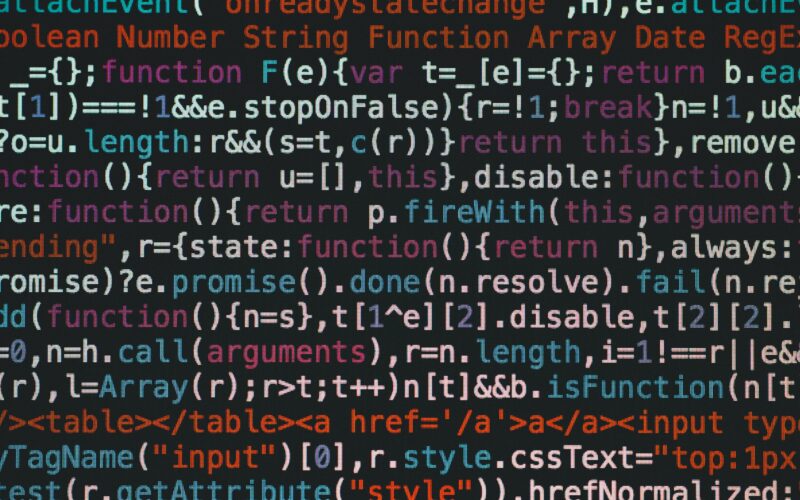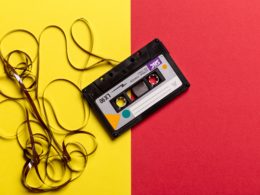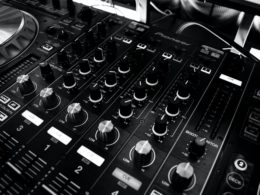As artificial intelligence (AI) continues to advance, courts are striving to establish precedents for this burgeoning technology. Numerous industries feel the impact, and the music industry is no exception. Music publishers Universal Music, ABKCO, and Concord Publishing have filed suit against Anthropic, an AI startup founded in 2021.1[1]Blake Montgomery and agencies, Music publishers sue Amazon-backed AI company over song lyrics, THE GUARDIAN (Oct. 19, 2023), https://www.theguardian.com/technology/2023/oct/19/music-lawsuit-ai-song-lyrics-anthropic. The publishers allege that Anthropic’s chatbot, Claude, infringes on their copyrights by using and reproducing lyrics from numerous songs without proper licensing.2[2]Id. This case filing raises pivotal questions about musical copyright infringement in the realm of artificial intelligence, as it appears to be the first lawsuit by music publishers addressing the use of song lyrics by AI.3[3]Id.
Who Are The Parties?
Founded in 2021, Anthropic is an American AI startup that created the chatbot Claude, and is a rival to OpenAI, the company responsible for ChatGPT.4[4]Will Henshall and Billy Perrigo, Dario and Daniela Amodei, TIMES (Sep. 7, 2023, 7:00 AM), https://time.com/collection/time100-ai/6309047/daniela-and-dario-amodei/. All seven founders of Anthropic previously worked at OpenAI but departed to reimagine their own version of AI.5[5]Id. Anthropic is funded through investments from major corporations such as Google and Amazon.6[6]Aaron Drapkin, What Is Claude AI and Anthropic? A Closer Look at ChatGPT’s Rival, TECH.CO (Jan. 2, 2024), https://tech.co/news/what-is-claude-ai-anthropic. Similar to other AI platforms, users can utilize the platform to seek answers to a variety of questions.7[7]Id. The company asserts that these conversations are saved temporarily and deleted from the backend within 90 days.8[8]Id..
Music publishers Universal Music, ABKCO, and Concord Publishing own the copyrights to various musical compositions by certain artists or songwriters.9[9]Blake Montgomery and agencies, Music publishers sue Amazon-backed AI company over song lyrics, THE GUARDIAN (Oct. 19, 2023), https://www.theguardian.com/technology/2023/oct/19/music-lawsuit-ai-song-lyrics-anthropic. In this case, they argue that Anthropic violates their rights by misusing copyrighted song lyrics to train the Claude chatbot.10[10]Id. The lawsuit claims that large amounts of lyrics from at least 500 songs, including Beyoncé’s “Halo” and the Beach Boys’ “God Only Knows,” have been copied and used without permission to train Claude in its response to the question prompts.11[11]Id. Furthermore, the publishers claim that Claude reproduces related lyrics as answers when asked to write a song.12[12]Id.
Why Is This An Issue?
Under copyright law, the author or creator has the right to control how their work is used by others.13[13]Office of the General Counsel, Copyright and Fair Use: A Guide for the Harvard Community, HARVARD UNIVERSITY (2023), https://ogc.harvard.edu/pages/copyright-and-fair-use Once the original work is fixed in a tangible medium, the creator receives a set of exclusive rights over their work, including reproduction, distribution, creation of derivative works, display, and public performance.14[14]Id. This encompasses literary, musical, dramatic, choreographic, and audiovisual works, as well as sound recordings performed through digital audio transmission.15[15]Id. Unauthorized uses are considered copyright infringement, but there are exceptions that a defendant can raise such as fair use.16[16]Id. Fair use allows the utilization of copyrighted material under particular circumstances without obtaining permission, thereby preventing overly strict enforcement of copyright law.17[17]Id.
Under fair use, the alleged infringer must prove that the use was fair under four factors:
Factor 1: The Purpose and Character of the Use
The purpose of the work is considered, with nonprofit educational uses, such as criticism, comment, teaching, and research, typically favored over commercial uses for monetary gain.18[18]Id. However, not all educational uses qualify as fair use; all four factors must be considered.19[19]Id. Original works that undergo transformation, adding new meaning or utility, are more likely to be considered fair use when examining the character of the use.20[20]Id.
Factor 2: The Nature of the Copyrighted Work
The characteristics or attributes of the original work being used are considered, with creative works, such as various forms of art, typically receiving greater protection.21[21]Id. Additionally, courts typically examine whether the original work was published or unpublished, with unpublished works being less likely to qualify for fair use.22[22]Id.
Factor 3: The Amount Used in Relation to the Whole
The amount used is determined by comparing the portion of the original work incorporated into the new work, and assessing whether that portion is necessary for the intended purpose of the new work.23[23]Id. While there are no specific measurements, using more of the original work typically reduces the likelihood of the new work qualifying for fair use.24[24]Id. Even small portions can be considered excessive if they represent the most significant part of the work.25[25]Id.
Factor 4: The Effect on the Potential Market for the Copyrighted Work
Assessing if the utilization of an original work impacts the copyright owner’s revenue or diminishes a new or potential market for their work.26[26]Id.
While these factors are not exhaustive, they are the main considerations courts evaluate when assessing fair use claims.27[27]Id.
In the landmark case of Authors Guild v. Google, a significant AI fair use precedent was established concerning Google Books.28[28]Authors Guild v. Google, Inc., 804 F.3d 202 (2d Cir. 2015). Google partnered with university libraries to scan and provide access to vast collections of books online, initially without securing consent from copyright holders.29[29]Id. The scans offered a searchable database for the public to explore terms and snippets, without presenting entire scanned books.30[30]Id. The Authors Guild, a professional organization for writers advocacy, and numerous authors alleged copyright infringement over the scanning and display of book snippets.31[31]Id. The Second Circuit ruled in 2015 that Google’s actions constituted fair use under U.S. copyright law.32[32]Id. This ruling was based on the transformative nature of Google’s creation, which the court found enhanced exposure to information about books without harming the market by providing the original works in full.33[33]Id. Because of this, the court found Google’s actions permissible under U.S. copyright law.34[34]Id. The plaintiffs appealed this decision, requesting the Supreme Court to hear the case; however, the Court declined, leaving the Second Circuit’s decision unchanged.35[35]Rachel Brooke, Fair Use Week 2023: Looking Back At Google Books Eight Years Later, AUTHORS ALLIANCE (Feb. 24, 2023), https://www.authorsalliance.org/2023/02/24/fair-use-week-2023-looking-back-at-google-books-eight-years-later/#:~:text=In%20the%20case%2C%20the%20court,.%20the%20original%20works.%E2%80%9D%20This.
Despite the precedent set by Authors Guild v. Google, recent court decisions demonstrate that the interpretation of fair use remains dynamic.36[36]Id. In the 2023 case of Goldsmith v. Warhol, photographer Lynn Goldsmith filed a copyright infringement lawsuit against the Warhol Foundation for Andy Warhol’s unauthorized use of her photography.37[37]Andy Warhol Foundation for Visual Arts, Inc. v. Goldsmith, 598 U.S. (2023) Warhol utilized Goldsmith’s images as a reference for a series of silkscreen prints.38[38]Id. The central legal issue revolved around whether Warhol’s use of Goldsmith’s photo constituted fair use, with courts deliberating on the transformative nature of the works.39[39]Id. The case reached the Supreme Court, which ruled against the Andy Warhol Foundation, determining that the use of Linda Goldsmith’s photograph was unauthorized.40[40]Id. Despite claims of transformative use, the Court highlighted the lack of sufficient transformation, indicating direct competition with Goldsmith’s work.41[41]Id.
This is the alleged issue in the Anthropic case: republishing or using lyrics online requires the copyright owner’s permission to avoid direct competition.42[42]Steffanee Wang, Here’s what you need to know about sharing lyrics online, THE FADER (June 26, 2019), https://www.thefader.com/2019/06/26/who-owns-lyrics-explainer. There are various types of music licenses; however, the basic idea is that any site wanting to use the lyrics must reach an agreement with the copyright owner and pay for the usage.43[43]Id. For example, lyric websites such as AZLyrics and Genius have licenses from the copyright owners to display lyrics and avoid potential copyright infringement.44[44]Id. These sites don’t transform the lyrics in any way; however, since they have agreements in place, they can transcribe the lyrics as they are.45[45]Id. The music publishers claim that without Anthropic obtaining a similar license, they are using and posting their lyrics for free, thereby infringing on copyrights and becoming direct competitors.46[46]Chris Cooke, Music publishers want preliminary injunction in legal battle with AI company Anthropic, COMPLETE MUSIC UPDATE (Nov. 20, 2023), https://completemusicupdate.com/music-publishers-anthropic-injunction/. Therefore, the court needs to determine whether Anthropic’s use of the lyrics to train the AI model constitutes fair use, and if not, whether they must obtain a license from the music publishers.47[47]Blake Brittain, Anthropic fires back at music publishers’ AI copyright lawsuit, REUTERS (Jan. 17, 2024, 6:30 PM), https://www.reuters.com/legal/litigation/anthropic-fires-back-music-publishers-ai-copyright-lawsuit-2024-01-17/. Additionally, it needs to be established whether the chatbot is indeed reproducing the copyrighted lyrics, as alleged by the music producers.48[48]Id.
Lawsuit History
After the filing of the lawsuit in October of 2023, the music publishers requested the District Court for the Middle District of Tennessee Nashville Division to issue a preliminary injunction.49[49]Chris Cooke, Music publishers want preliminary injunction in legal battle with AI company Anthropic, COMPLETE MUSIC UPDATE (Nov. 20, 2023), https://completemusicupdate.com/music-publishers-anthropic-injunction/. Their aim was to prevent Anthropic’s current AI model from generating their lyrics in any outputs and from using them to train future models.50[50]Id. This filing emphasized urgency, arguing that delayed action could lead to irreversible damage.51[51]Id. The preliminary injunction request contended that Anthropic’s use of copyrighted lyrics without licensing harms not only the licensing market for lyrics but also the publishers’ relationships with licensees and their goodwill with represented songwriters.52[52]Id. Anthropic disputed this assessment, arguing that its training constitutes fair use, while also attributing any reproduction of lyrics to technical issues.53[53]Blake Brittain, Anthropic fires back at music publishers’ AI copyright lawsuit, REUTERS (Jan. 17, 2024, 6:30 PM), https://www.reuters.com/legal/litigation/anthropic-fires-back-music-publishers-ai-copyright-lawsuit-2024-01-17/. Anthropic asserts that it has implemented guardrails to prevent the reproduction of copyrighted work on their site.54[54]Id. The court has not yet ruled on the injunction, with the last update being the plaintiff’s filing a reply to Anthropic’s response, disputing their claims, in February 2024.55[55]Id.
Conclusion
This case is in its early stages; therefore, it is uncertain whether the music publishers’ copyright claim will be upheld or if Anthropic’s fair use defense will prevail. Nonetheless, this case underscores significant legal concepts, such as whether the use of copyrighted material to train AI will fall under the fair use defense. As music law evolves alongside technological advancements, the outcome of this case will shape the future relationship between AI and music.
By: Raegan Brizek
Raegan Brizek is a 2025 J.D. Candidate at Brooklyn Law School
[1] Blake Montgomery and agencies, Music publishers sue Amazon-backed AI company over song lyrics, The guardian (Oct. 19, 2023), https://www.theguardian.com/technology/2023/oct/19/music-lawsuit-ai-song-lyrics-anthropic.
[2] Id.
[3] Id.
[4] Will Henshall and Billy Perrigo, Dario and Daniela Amodei, TIMES (Sep. 7, 2023, 7:00 AM), https://time.com/collection/time100-ai/6309047/daniela-and-dario-amodei/.
[5] Id.
[6] Aaron Drapkin, What Is Claude AI and Anthropic? A Closer Look at ChatGPT’s Rival, tech.co (Jan. 2, 2024), https://tech.co/news/what-is-claude-ai-anthropic.
[7] Id.
[8] Id.
[9] Blake Montgomery and agencies, Music publishers sue Amazon-backed AI company over song lyrics, The guardian (Oct. 19, 2023), https://www.theguardian.com/technology/2023/oct/19/music-lawsuit-ai-song-lyrics-anthropic.
[10] Id.
[11] Id.
[12] Id.
[13] Office of the General Counsel, Copyright and Fair Use: A Guide for the Harvard Community, harvard university (2023), https://ogc.harvard.edu/pages/copyright-and-fair-use.
[14] Id.
[15] Id.
[16] Id.
[17] Id.
[18] Id.
[19] Id.
[20] Id.
[21] Id.
[22] Id.
[23] Id.
[24] Id.
[25] Id.
[26] Id.
[27] Id.
[28] Authors Guild v. Google, Inc., 804 F.3d 202 (2d Cir. 2015).
[29] Id.
[30] Id.
[31] Id.
[32] Id.
[33] Id.
[34] Id.
[35] Rachel Brooke, Fair Use Week 2023: Looking Back At Google Books Eight Years Later, Authors Alliance (Feb. 24, 2023), https://www.authorsalliance.org/2023/02/24/fair-use-week-2023-looking-back-at-google-books-eight-years-later/#:~:text=In%20the%20case%2C%20the%20court,.%20the%20original%20works.%E2%80%9D%20This.
[36] Id.
[37] Andy Warhol Foundation for Visual Arts, Inc. v. Goldsmith, 598 U.S. (2023)
[38] Id.
[39] Id.
[40] Id.
[41] Id.
[42] Steffanee Wang, Here’s what you need to know about sharing lyrics online, The Fader (June 26, 2019), https://www.thefader.com/2019/06/26/who-owns-lyrics-explainer.
[43] Id.
[44] Id.
[45] Id.
[46] Chris Cooke, Music publishers want preliminary injunction in legal battle with AI company Anthropic, complete music update (Nov. 20, 2023), https://completemusicupdate.com/music-publishers-anthropic-injunction/.
[47] Blake Brittain, Anthropic fires back at music publishers’ AI copyright lawsuit, reuters (Jan. 17, 2024, 6:30 PM), https://www.reuters.com/legal/litigation/anthropic-fires-back-music-publishers-ai-copyright-lawsuit-2024-01-17/.
[48] Id.
[49] Chris Cooke, Music publishers want preliminary injunction in legal battle with AI company Anthropic, complete music update (Nov. 20, 2023), https://completemusicupdate.com/music-publishers-anthropic-injunction/.
[50] Id.
[51] Id.
[52] Id.
[53] Blake Brittain, Anthropic fires back at music publishers’ AI copyright lawsuit, reuters (Jan. 17, 2024, 6:30 PM), https://www.reuters.com/legal/litigation/anthropic-fires-back-music-publishers-ai-copyright-lawsuit-2024-01-17/.
[54] Id.
[55] Id.




